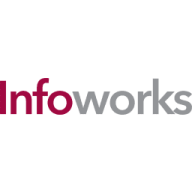

Teradata and InfoWorks are leading competitors in the data management sector. Teradata leads with strong analytics capabilities and scalability for large data needs, while InfoWorks focuses on agile operations and automation, appealing to businesses seeking efficiency.
Features: Teradata offers comprehensive data analytics, scalability, and integration options, suitable for handling complex analytical workloads for large enterprises. InfoWorks emphasizes automation and ease of use, simplifying data ingestion and management for rapid deployment and operational efficiency.
Ease of Deployment and Customer Service: Teradata involves a complex deployment process, accommodating organizations with dedicated IT teams and providing detailed customer support. InfoWorks offers fast deployment with automated processes and user-friendly support, ideal for companies requiring less intensive setup.
Pricing and ROI: Teradata typically has higher initial costs, offering long-term value through advanced analytics for large enterprises. InfoWorks provides competitive pricing, emphasizing quick ROI with lower setup costs and faster time-to-market.
| Product | Market Share (%) |
|---|---|
| Teradata | 9.5% |
| InfoWorks | 1.0% |
| Other | 89.5% |

| Company Size | Count |
|---|---|
| Small Business | 28 |
| Midsize Enterprise | 13 |
| Large Enterprise | 52 |
Infoworks is the only solution providing complete functionality in a single platform from data ingestion, data synchronization and the building of data models and cubes
Scale your data warehousing and analytics on Hadoop, not by adding armies of people but instead by using advanced machine intelligence
Infoworks is the complete Data Warehousing solution, eliminating the need to integrate multiple disparate point solutions. Infoworks helps organizations lower their EDW costs now and make business users even more successful.
Infoworks is the only solution providing complete functionality in a single platform from data Ingestion, data Synchronization and the building of data models and cubes. Infoworks achieves all this by automatically crawling and synchronizing data from all data sources, dynamically adapting to schema/data changes and automatically organizing the data sets for high performance query access.
Teradata is a powerful tool for handling substantial data volumes with its parallel processing architecture, supporting both cloud and on-premise environments efficiently. It offers impressive capabilities for fast query processing, data integration, and real-time reporting, making it suitable for diverse industrial applications.
Known for its robust parallel processing capabilities, Teradata effectively manages large datasets and provides adaptable deployment across cloud and on-premise setups. It enhances performance and scalability with features like advanced query tuning, workload management, and strong security. Users appreciate its ease of use and automation features which support real-time data reporting. The optimizer and intelligent partitioning help improve query speed and efficiency, while multi-temperature data management optimizes data handling.
What are the key features of Teradata?
What benefits and ROI do users look for?
In the finance, retail, and government sectors, Teradata is employed for data warehousing, business intelligence, and analytical processing. It handles vast datasets for activities like customer behavior modeling and enterprise data integration. Supporting efficient reporting and analytics, Teradata enhances data storage and processing, whether deployed on-premise or on cloud platforms.
We monitor all Data Warehouse reviews to prevent fraudulent reviews and keep review quality high. We do not post reviews by company employees or direct competitors. We validate each review for authenticity via cross-reference with LinkedIn, and personal follow-up with the reviewer when necessary.